Authors:
Chatpong CHUENRUDEEMOL, Principal Architect, CHAT Architects, Thailand
Abstract: In 2012, Chat Architects initiated their “Bangkok Bastards” project, an on-going documentation of everyday architecture, created by everyday people, to solve every day problems in Bangkok, the capital of Thailand. The research subjects of this project range from living shantytowns to moving food carts and temporary construction worker houses to abandoned curtained love motels—in essence, misfit architectures that Bangkokians encounter on a daily basis, but view as insignificant eyesores to the city.
Through richly rendered plans, sections, elevations, and isometrics—which are colorful, tactile, and messy, rather than monotone, minimal, and clean—Chat Architects tells the story of grassroots design ingenuity, opportunistic adaptations, and the humorous spirit of Bangkok’s underprivileged and “unseen” populations, as seen through the lens of these beautiful “bastards.”
Over recent years, the research boundary has moved from Bangkok and out into the Thai countryside, where “rural crossbreeds” reveal bastard agricultural buildings, pavilions, and contraptions that are rooted in Thailand’s widely spread and long-standing cultivation of rice. The research has since moved beyond the rice paddies and fruit farms in the Isan Provinces and into the isolated forests and mountains of Thailand to also identify “indigenous hybrids” that reveal the inventive spirit embodied in the Karen hill tribe population in Ratchaburi Province.
A front door bridge in Dusit Dstrict, Bangkok, Thailand
Klong Peng Chumchon, a “dead klong” community in Thonglor Neighborhood, Bangkok, Thailand
Hybrid bridge beam—section of a canal and waterside residence showing unique concrete canal beams that keep the canal’s retaining wall from crumbling into the water. These infrastructural beams have been repurposed by locals as “community bridges;” children expertly scamper across these slender members above the putrid waters.
Street food mansion, Dusit District, Bangkok, Thailand
Rendition of the street food mansion in Dusit District
“Bastardizing the Bastard”—“Bastard child” 1
“Bastardizing the Bastard”—“Bastard child”2
Construction workers’ house, Rama 9 Road, Bangkok, Thailand
Samsen STREET Hotel by Chat Architects, Bangkok, Thailand
Street elevation of Samsen STREET Hotel by Chat Architects showing the introduction of green “living scaffolding” elements to the existing concrete structure. The vertical “soi” (vertical alley) scaffolding allows utility workers to service all MEP systems exposed on the façade
Samsen STREET Hotel at night—the green “soi” scaffolding transforms into a vertical stage on weekends and holidays, allowing for public street concerts to re-energize this once dilapidated red-light neighborhood
Garlic-drying shed in a plantation in Mae Faag Province, northern Thailand
Garlic drying sheds located at the heart of garlic and onion plantations are a common sight in northern Thailand
A brick kiln Bastard in Nakhon Si Thammarat, southern Thailand
Brick kiln’s building and firing process

A Karen bamboo mixed-seed dispenser
The Karen way of rotational farming
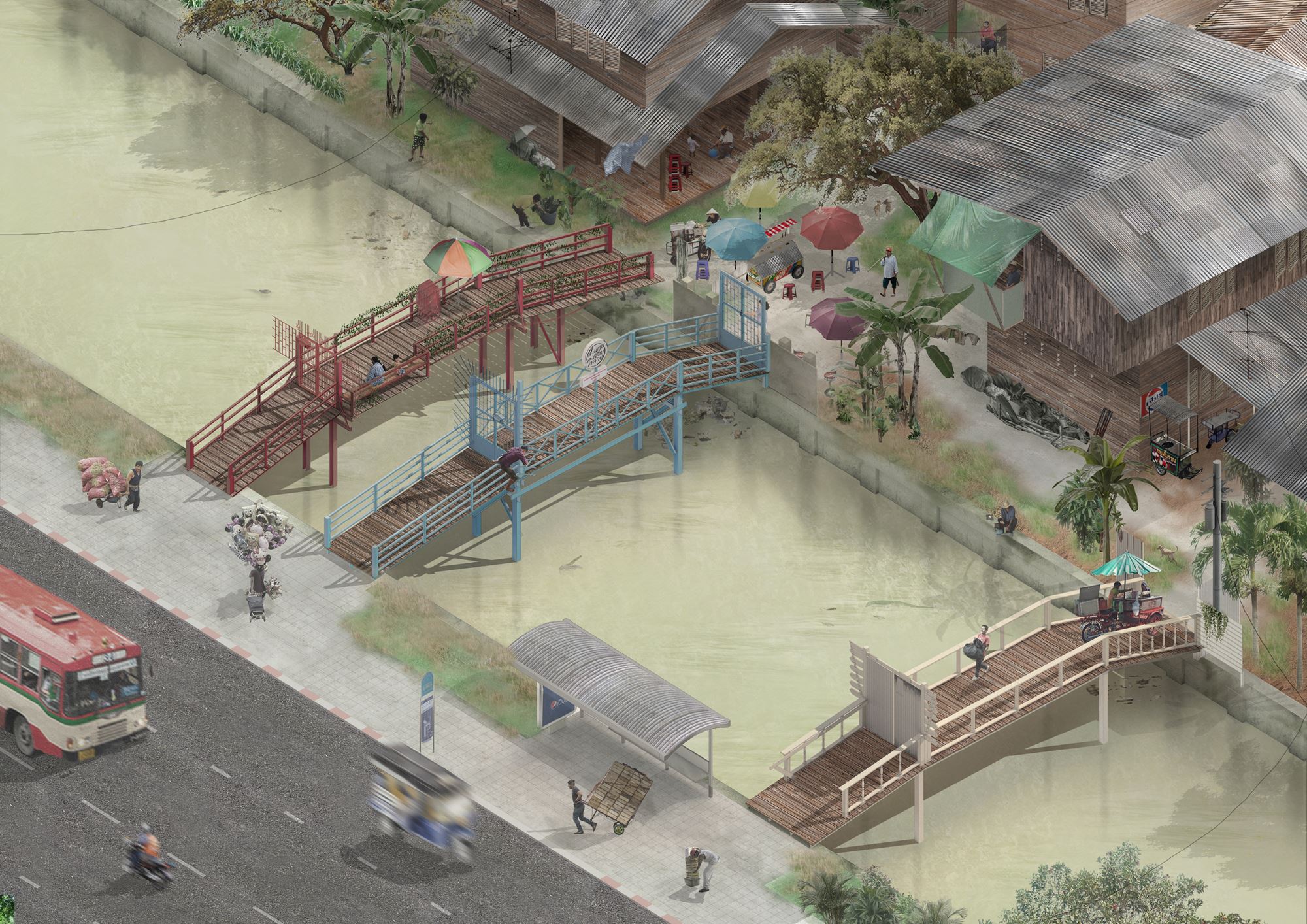
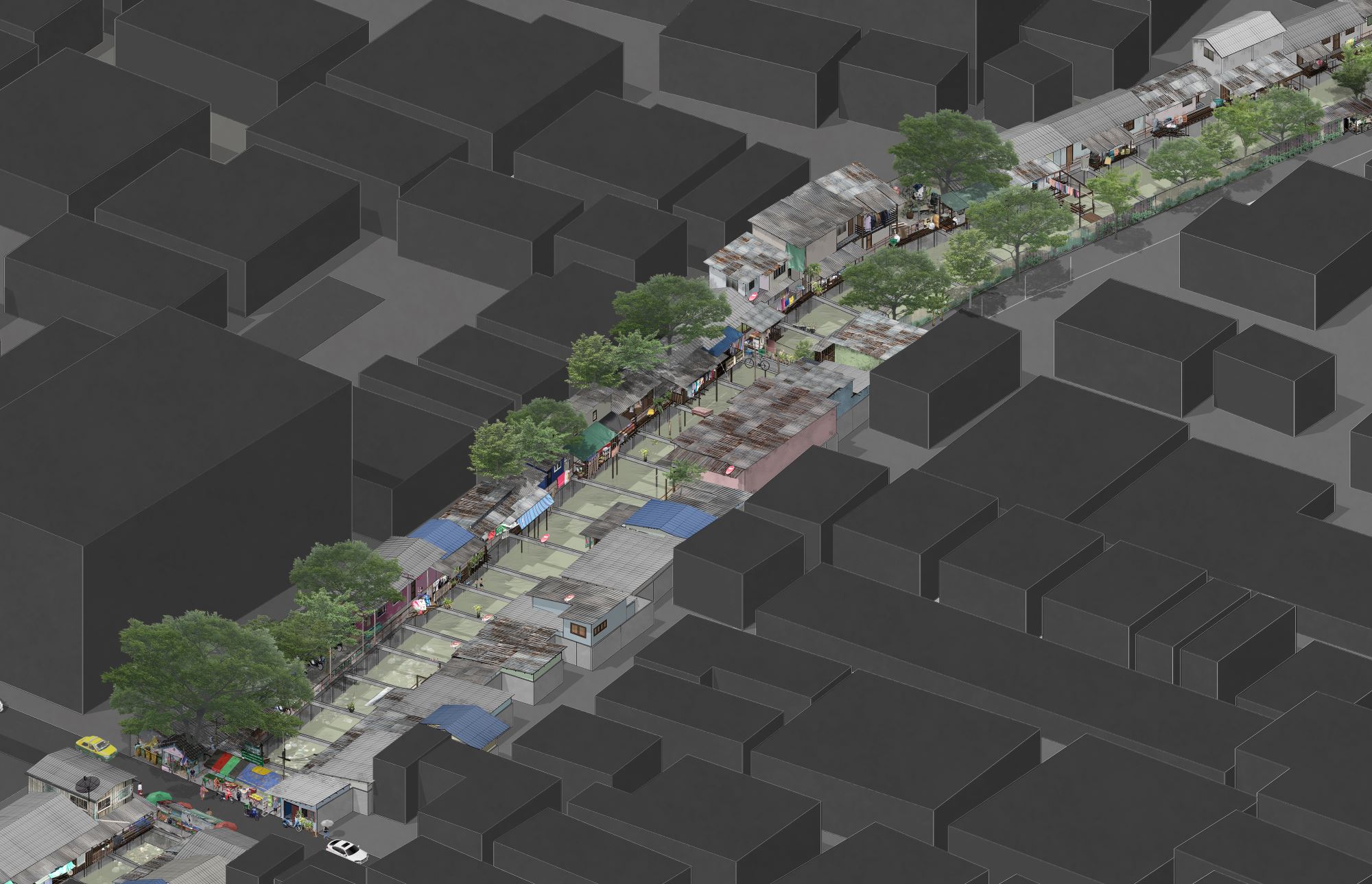

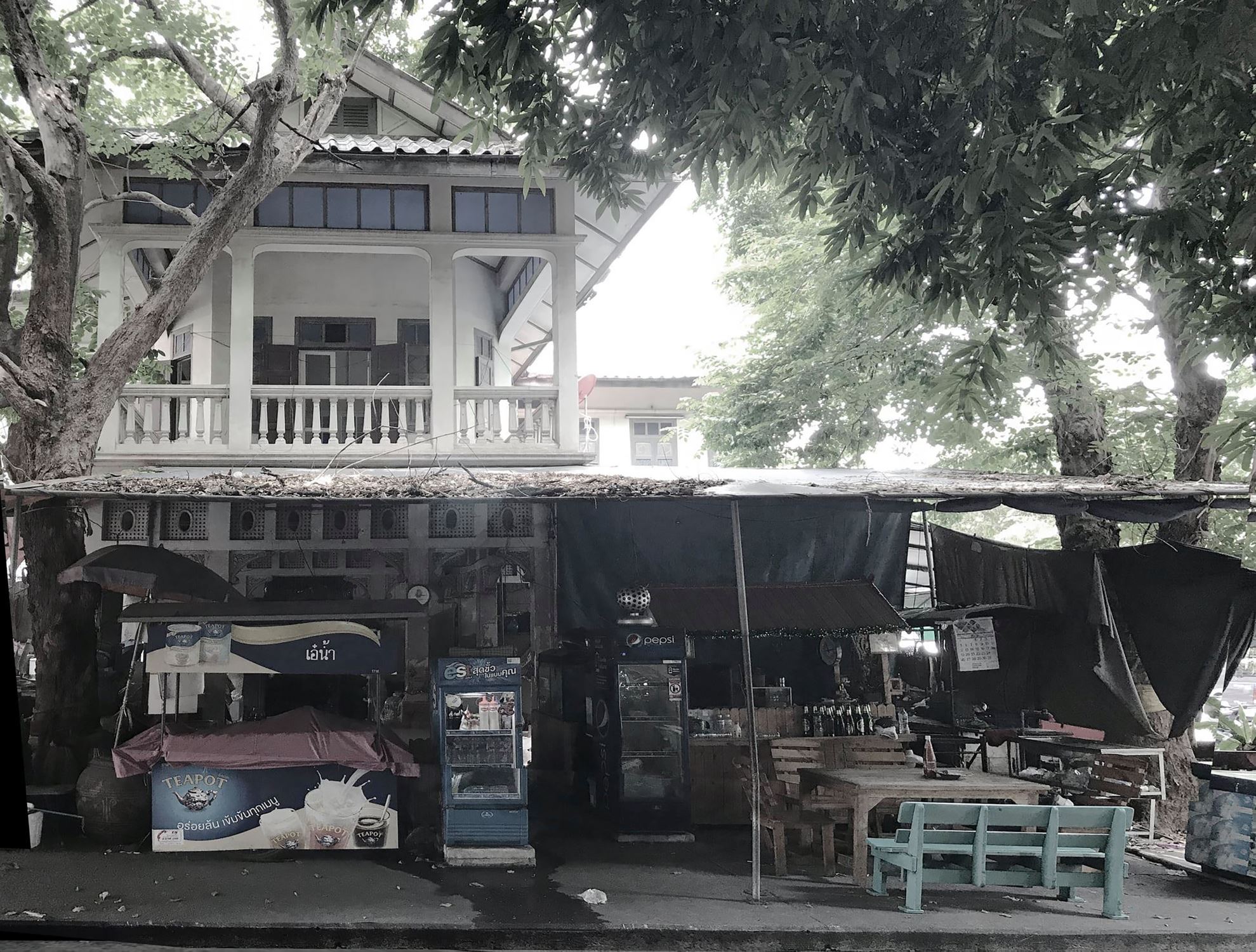



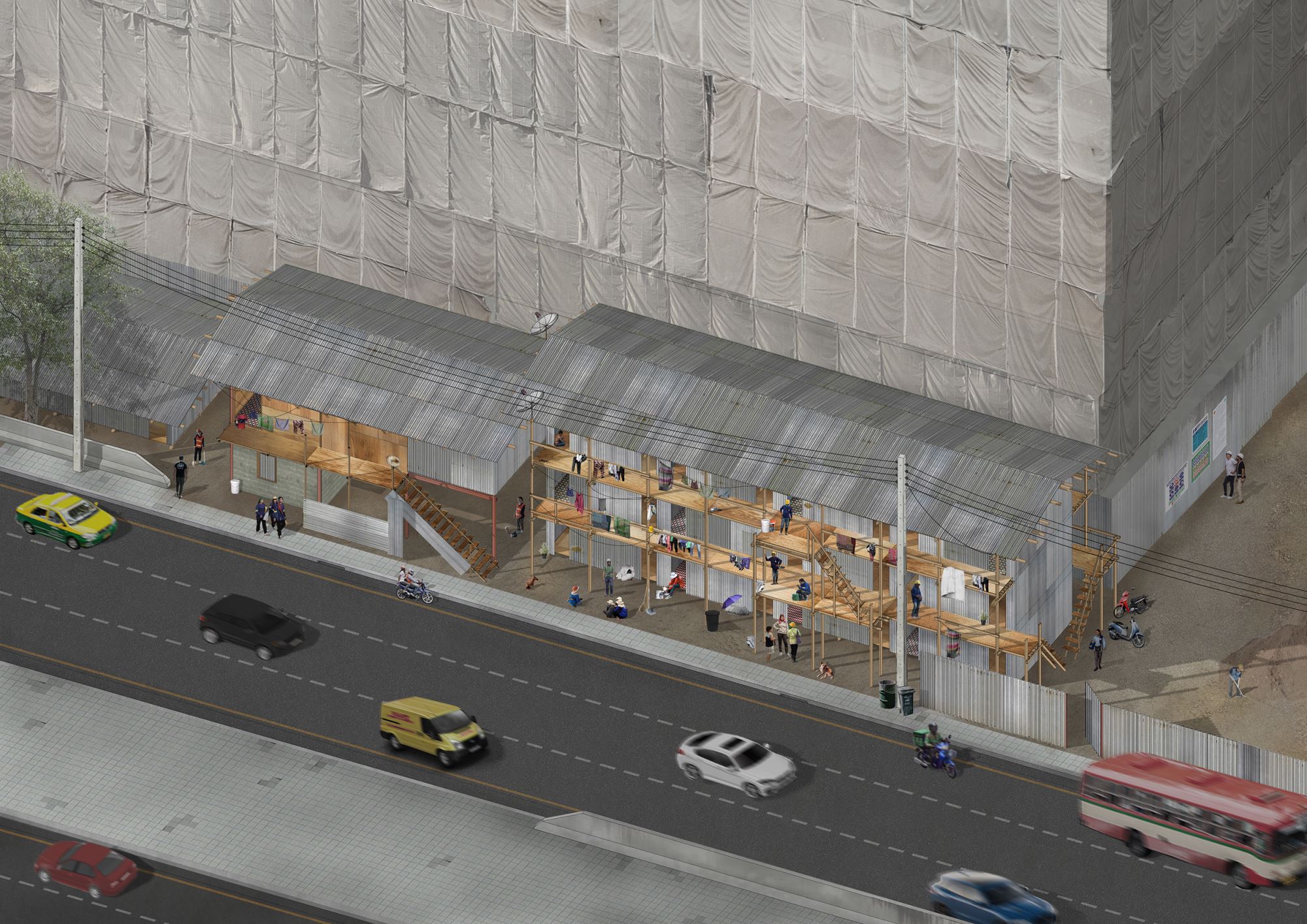
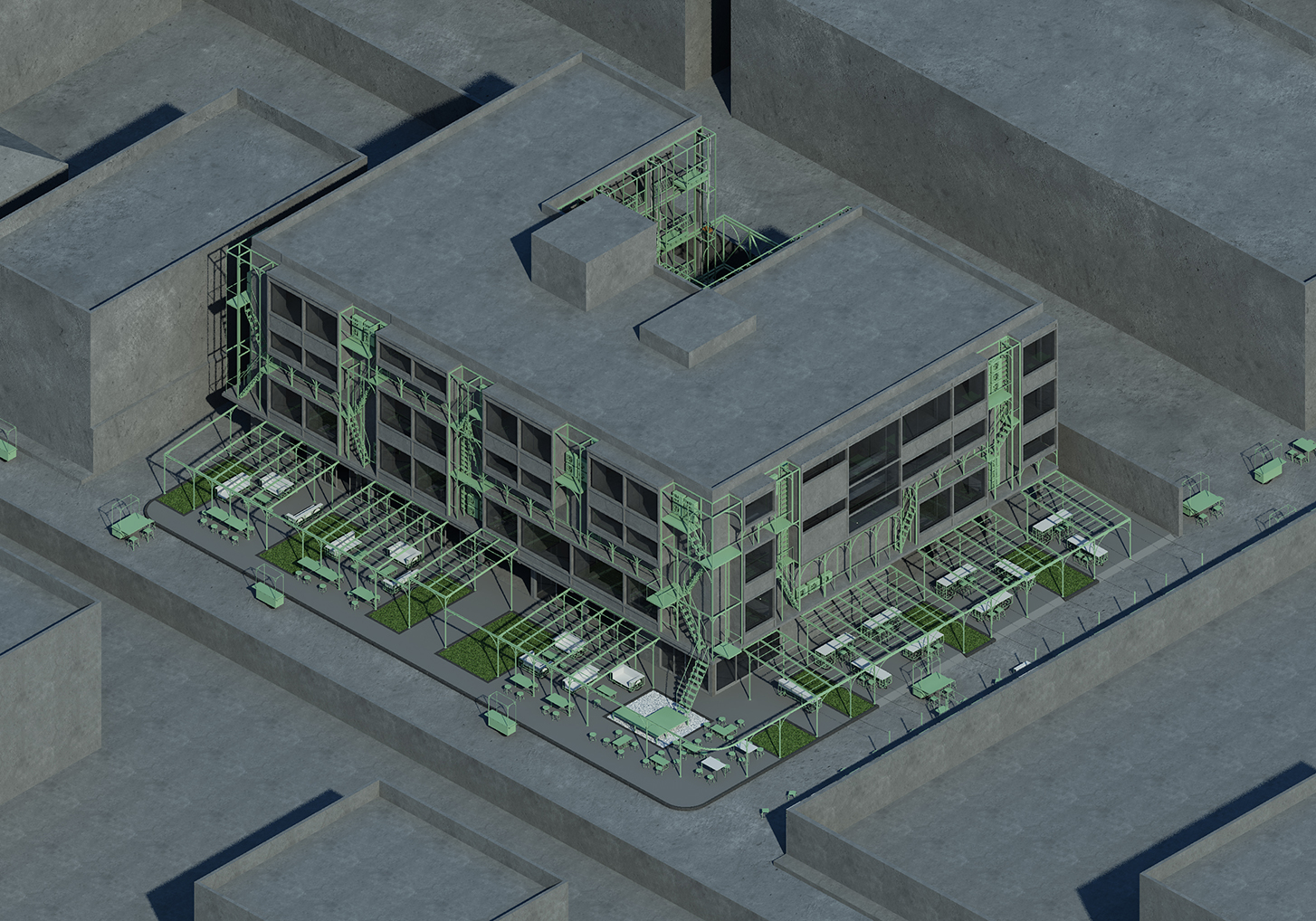
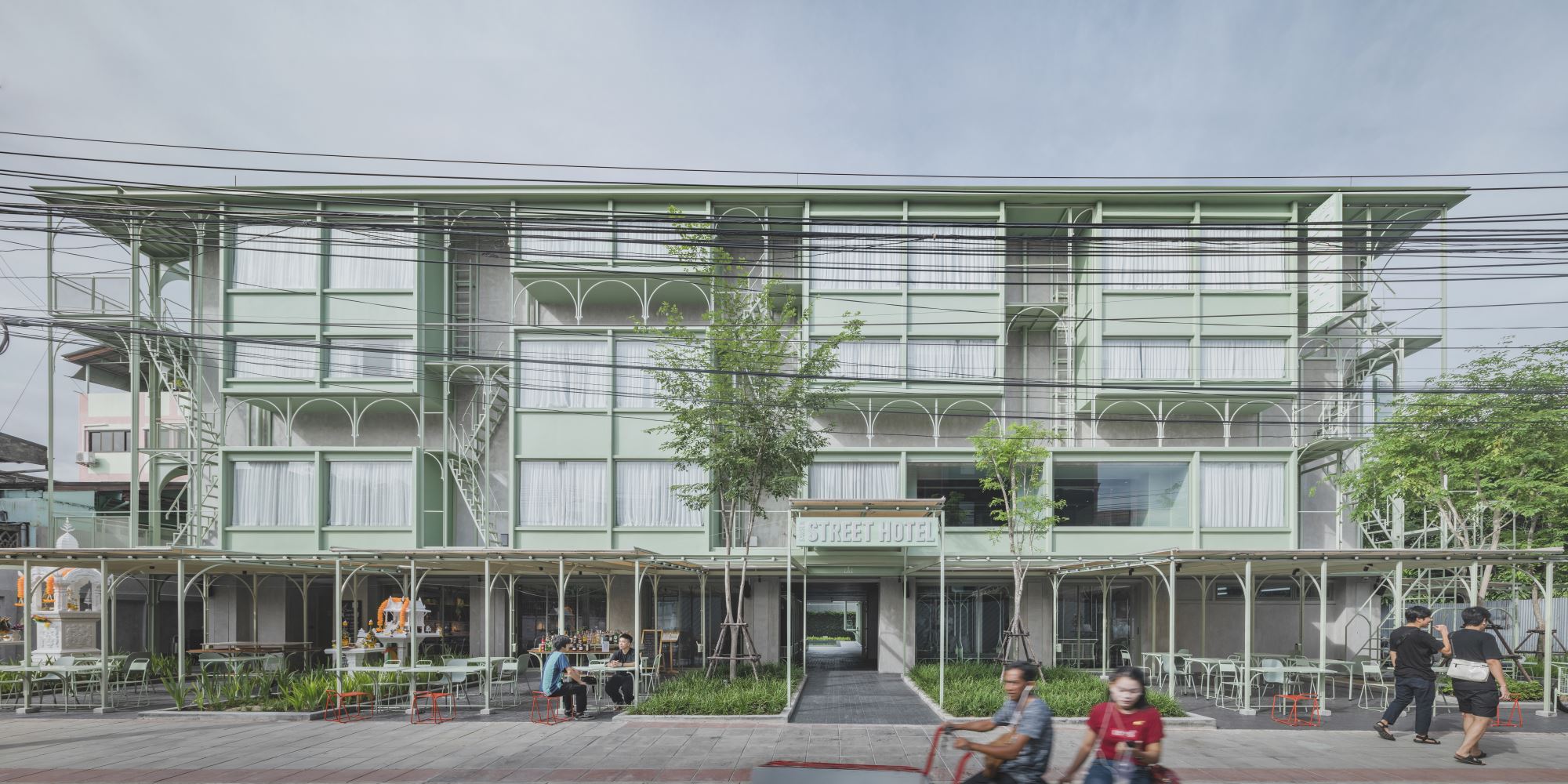
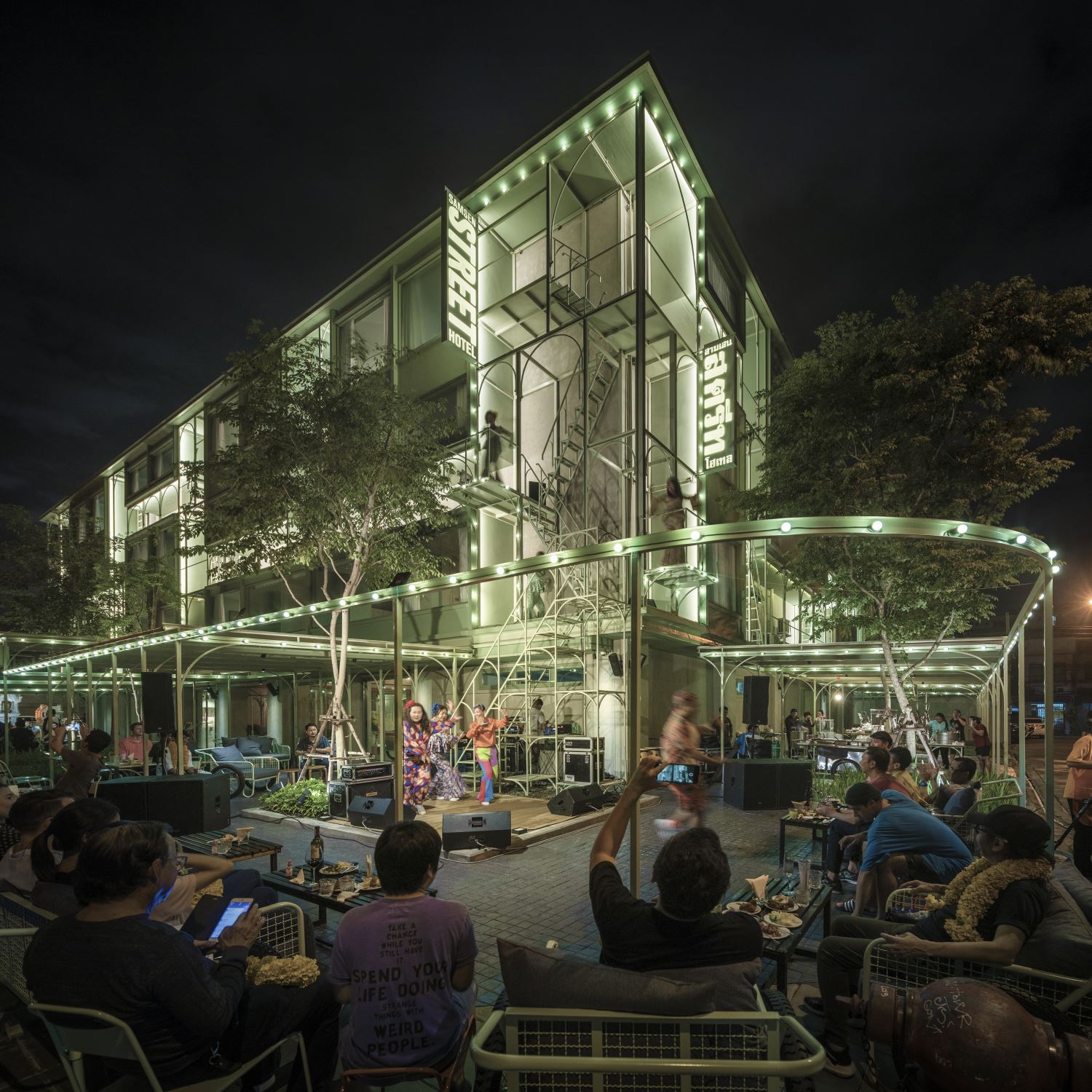



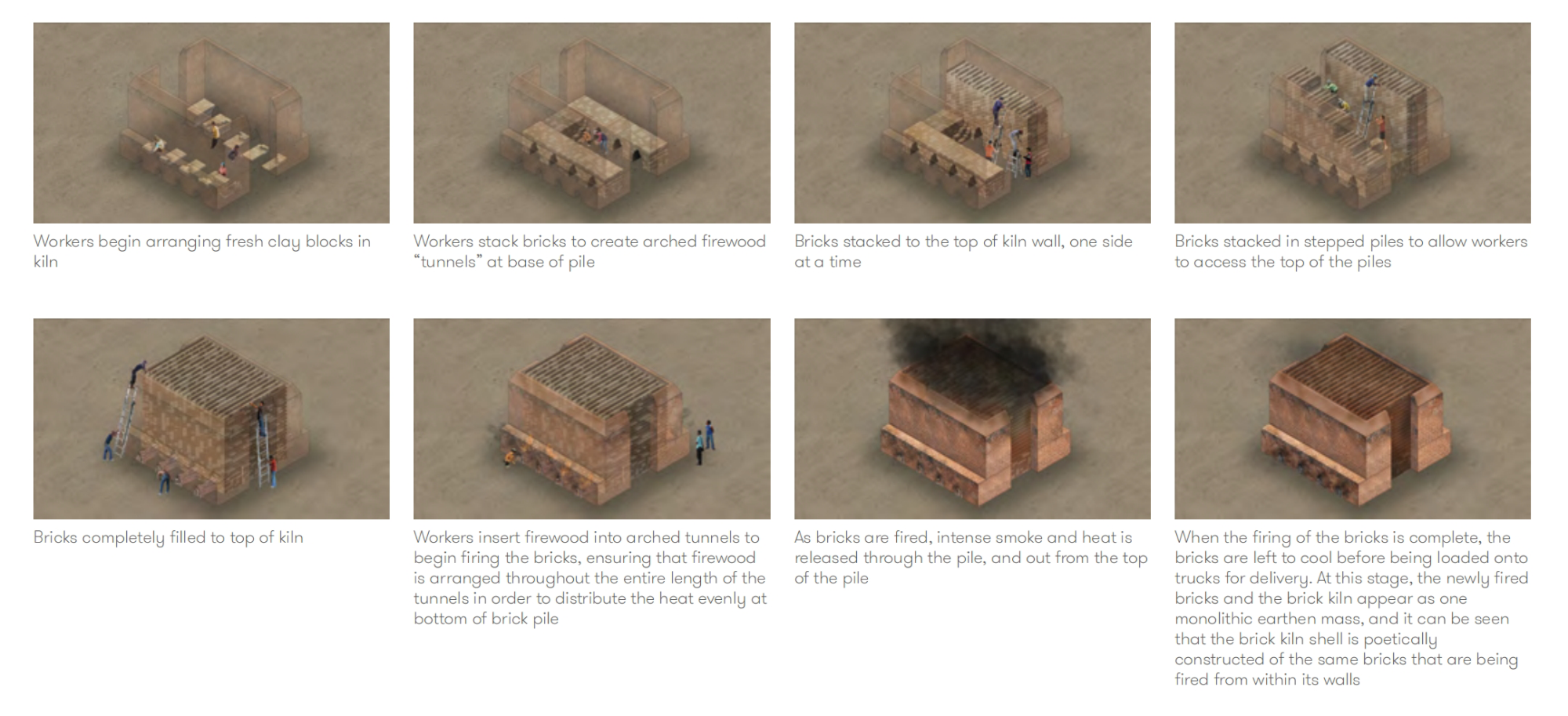













 loading......
loading......